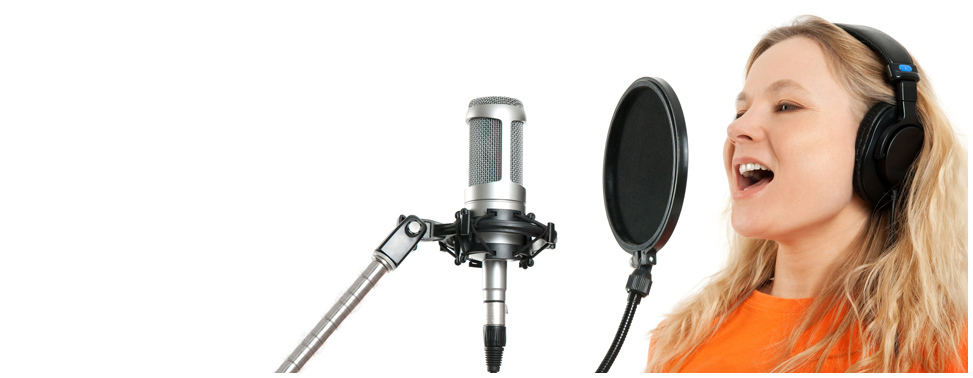Home > Listening Therapy > Performing Arts

If human beings wish to realise all their potentialities, they must be much more right eared and right mouthed than left.…Dr. A Tomatis
Performing Arts and Communication
Dr. A Tomatis from “You too can speak languages”Through vocal self expression man listens to himself. This may seem very simple, but it is not at all. Because that which he hears never is that which he emits. Indeed, we are always shifting with regard to ourselves. The laryngal voice, which sends out the language in the direction of the person who is being spoken to and which makes our osseous system vibrate, brings our own voice back to us. We then perceive it a second time through atmospheric conduction. The emission via the inner ear is ideally, in harmony with the first emission. This is often unfortunately, not the case, except for those few “good listeners”. There is a physiological reason for this displacement - the low tones reach the ear of the speaker in greater number, the high frequencies travel straight ahead and the middle range frequencies dissipate to the sides. Thus the poverty of our control by the osseous path profoundly modifies our relationship with the other. Progressively the voice loses its tone, loses its timbre and its warmth.
To hear assumes a passive attitude in relation to the world of sound which encompasses us. We receive the sounds and we register them, like a tape recorder. There is no interpretation by our psyche of the message emitted.
To listen is quite a different operation. It requires the participation of the subject, his adherence to refusal to consider the messages which reach first his ear then his nervous system. The barriers generally produce themselves in a part of the brain called the thalamus. After a sound has been imprinted on the auditory circuit, the information is directed towards the brain. It all proceeds through the thalamus, a place of passage through which our entire emotional lives must pass. One day or another, the thalamus changes its nature and becomes blocked. As we endure difficult situations, there comes a moment when the whole perception of the environment freezes. Suddenly information no longer gets through. The thalamus has become a pool full of distress and anguish, a burden which will weigh down both the present and the future. The ear projects itself on the thalamus, which in a way decides what it wants or does not want to hear. The acceptances, the divisions, the refusals depend upon it. When we measure the ear for hearing, we do not content ourselves (as in classic audiometrics) to establish the points of response of hearing. We try to know what is accepted by the thalamus because it is this which opens or closes the door to the brain. Its blockages can be a great block capable of polluting the whole nervous system. It is in the front line of reception and comprehension of language.
For these reasons Tomatis Listening Therapy is one of the best-kept secrets of the performing arts as it gives you accurate perception of your own voice and clears the thalamus of unwanted subjective responses which take away truth, cloud and distort desired information transferral and authenticity. Maria Callas, Beniamino Gigli, Romy Schneider, Juliette Binoche and Gerard Depardieu have all been clients of Professor Tomatis. and many more performers have benefited by becoming good listeners.
A career on the stage is possibly one of the most challenging and difficult professions. Performing engages all of our being; mind, body and spirit must be primed and focussed to bring out the best performance.
Listening is a true engagement of our whole body, not something that is confined to our heads. When our listening patterns allow us "to become all ear" the we can experience an awareness that nature intended.
Being a good communicator is a huge advantage in life as well as a prerequisite for a performer. Tomatis believed that the thalamus becomes overburdened through negative sound experience which makes us reactive to certain stimulus, Listening Therapy clean sweeps through old emotional charges and allow us to become more objective, not sabotaged by past negative experience.
A change in listening is brought about by treatment with the electronic listening device that filters selected frequencies of sounds thereby exercising muscles in the middle ear that have lost their vibrancy and ability to respond accurately and quickly to certain frequencies. Returning these muscles to condition the ear becomes more receptive and following this our own production of sound alters as well. The course is intensive and the results are permanent - unlike coaching and other discursive procedures the treatment is not geared towards learning a technique but works gently and without rote learning of any sort. By improving our listening patterns we can bring benefits and awaken:
Mind - focus, memory, concentration, precision and accuracy, sense of melody, inflection and articulation.
Body - spatial awareness, balance, muscular tone, posture, energy levels, and sense of rhythm. The voice is improved in resonance and delivery can be more convincing by the sheer force of its balance, proportion and musicality, without being strained .
Spirit - connectedness to one's true potential, the creative force and wealth of imagination previously only partially tapped.
For more information or to book an assessment Contact us.
